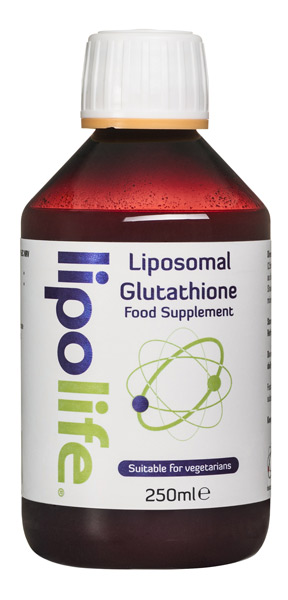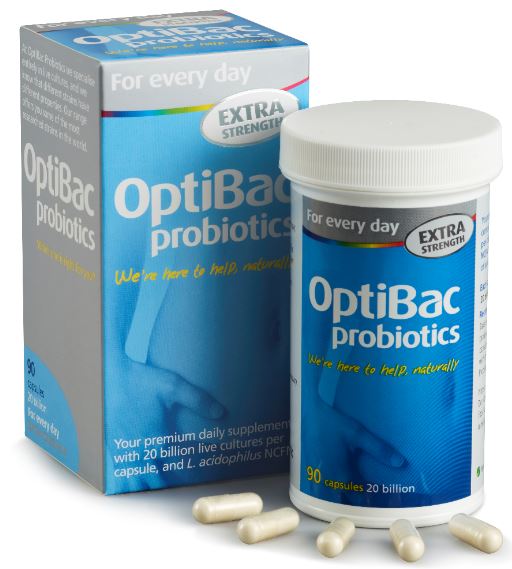I’ll get to the 10% off kit in a moment. First of all, here is a list of products that can be very helpful where it comes to hay fever, respiratory health, and allergies.
1.  Allertrex – a dedicated botanical for allergies and breathing difficulties.
Allertrex – a dedicated botanical for allergies and breathing difficulties.
AllerTrex™ is brought to you by Global Healing (GH). It is a blend of powerful botanical ingredients and essential oils that support normal function and cleansing of the lungs, sinuses and respiratory tract. Contains 1 fluid oz. The suppliers web site has nearly 300 reviews for this product, and we will re-publish a few of them here…
Doc said I have emphysema. He said “not really bad” when I asked how bad is it? After long time chronic bronchitis, 3 rounds all different antibiotics, followed by 30 days of another, miraculously I found this. This product, along with a Himalayan salt pipe, almost all wheezing and congestion is gone. Amazing. I have been sick for over 3 years. I almost feel brand new. Won’t be without this product…get it now if you want to enjoy getting off inhalants. Amazing stuff. Thank you. I am 73.
My 3 year old daughter was given Albuterol Sulfate in two different forms by her doctor to stop wheezing. Each time my daughter would have a terrible skin rash or act out of control behaviorally only for the wheezing to return. I discontinued the Albuteral Sulfate and began my search for something natural that would strengthen her lungs. I found “ALLER TREX”! The name was very catchy. I called to inquire if the product was safe for my child and to my surprise a very nice man answered the phone and addressed my concerns beyond my expectations. Within a few days I received my order of “ALLER TREX” and gave it to my daughter as directed on the bottle. After only two doses, NO MORE WHEEZING, even while she slept! She also likes the taste.
It may sound contradictory to say that I’m health conscious and in the same breath, say that I smoke, but that’s life. Most of us are guilty of some habit or another that isn’t healthy. I quit smoking for several months more than once and missed it and started back. The last time I started smoking again, I said I would only smoke organic tobacco and that’s what I’ve done – about 10 a day is all I want. I started using AllerTrex in the hopes of counteracting the smoking. I am pleased to say that my lungs work fine and I do not have a “smoker’s cough”. I work out and also walk and my lung capacity has greatly improved since I started smoking organic cigarettes and using AllerTrex regularly. I’ll keep using it and I intend to keep smoking too!
2. 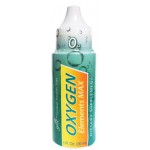 Flood Your Body With Oxygen!
Flood Your Body With Oxygen!
How can the oxygen products help hay fever and asthma?
It’s simple really. When the mucous membranes in our noses our noses, throats, ears and lungs are properly oxygenated, they are better able to operate effectively and healthily. As a result of this, they are less susceptible to inflammation and discharge. For some people, products such as Oxygen Elements Max have a decongesting effect and so even if you are totally clogged up, they may provide relief from the discomfort of hay fever and asthma. We receive many reports from customers on how they have been helped. (For the same reasons as given above, they can help with other problems connected with some kind of congestion. A poignant example concerns one lady who phoned and related a quite remarkable story concerning how her husband had been “cured” of sleep apnea. We put the word “cured” in inverted commas as we never claim that any of our products “cure” anything. We believe they enhance health rather than “cure” disease).
It’s not all good news though, as some people need to take much higher than the label dosage for relief. One example of this is provided by the customer review that follows.
A customer testimonial on hay fever
This is quite a long read but please bear with me as I want to fully explain how Oxygen Elements Max has effectively ‘cured’ my hay fever.
I’m 42 years old and first came to London in 1989. I had a very bad allergy problem which was diagnosed by a ‘specialist’ as being allergic to the fumes and general urban environment of smoggy/dirty London. He prescribed a steroid spray which did relieve my symptoms and told me I would be on it for life. To make matters worse, every summer I get very bad hay fever attacks. It’s the most miserable time of the year for me, experiencing the usual symptoms…nasal cavities itching like mad, runny eyes, blocked nose and terrible trouble trying to get to sleep at night. I’m an actor and do lots of voice over work for television and radio so it needed to be addressed for professional reasons too. Last February after seeing a nutritionist I was told I suffered from candida. I was put on a strict detox diet, I cut out refined food, starved my body of sugar and basically ate really well. I also took advanced probiotics (and later) supplements from the Finchley Clinic. Then at the end of March I started to notice that people around me were sneezing…but I wasn’t. I kept asking my girlfriend if it was the hay fever season because I wasn’t getting any symptoms. I thought it must be my detox and general healthy eating plan. Then I read your article about the guy who had been taking Oxygen Elements Max and it had severed his hay fever symptoms. That’s when I realised that I had been taking it too. About two weeks ago I did start to get some symptoms and was a little disappointed thinking it was going to massively kick in again. However I decided to quadruple the Oxygen Elements Max dosage (i.e. 28 drops) to see if it would help and it did. I was so happy that every time I sat on a train and saw people sneezing I just wanted to say ”hey, I know how you feel, try using this product” etc but decided not to as people may think I’m some sort of weirdo! A friend came over last week and although I wasn’t suffering, had a hay fever attack. I gave her 28 drops and she said she felt much much better. I am now convinced that the main reason for my apparent ‘cure’ is the Oxygen Elements Max.
I do think the detox / probiotics and general healthy eating plan has helped, but without question and with no doubt whatsoever, after starting to get a bit ‘sneezy’ Oxygen Elements Max has cleared my symptoms within about 20 minutes. Being as this has not been designed to actually relieve hay fever symptoms per say, and is in fact meant for general health and well being, I will be taking this supplement for life.
Vitamin C and allergies
Vitamin C can be very useful for relieving hay fever. This is because of its anti inflammatory properties (yes, Vitamin C is not just for boosting the immune system when you have a cold or flu). But it usually needs to be taken in quite high dosages to relieve allergies – a friend of mine finds that 10-15g per day works for him. For this reason, it might be worth considering Vitamin C in powder form as its better value for money in the quantities required. 1 teaspoon (5 grams) two to three times a day often brings tremendous relief within hours of beginning this regime. Children may take half this dosage. Since vitamin C is in and out of the body within six hours, it’s best taken in divided doses. You can take it every two hours if necessary.
Quercetin and allergies
Quercetin is a an antioxidant particularly known for being anti inflammatory. It is found in apple skin, black tea, onions and a number of other foods. With hay fever it is thought to work by prevent the release of the inflammatory chemical histamine from immune cells called mast cells. Histamine is the molecule involved in allergic symptoms such as sneezing and itching. A therapeutic dosage for hay fever is usually around 2 capsules two or three times per day, which is slightly above the suggested dosage on the label.
When I was writing the previous incarnation of this email (written May 2019), I found a nice little article on Vitamin C and Quercetin for hay fever in The Daily Mail which extols the benefits of taking the two nutrients together.
3.  Liposomal HistX – Combining Vitamin C and Quercetin
Liposomal HistX – Combining Vitamin C and Quercetin
HistX is a new product launched in the Spring of 2019. Combining Vitamin C and Quercetin in a liposomal form, ensuring almost perfect absorption as a result of the unique and industry leading liposomal process discussed in previous newsletters. . If you’re still awake and read the last two suggestions, you will appreciate that Vitamin C combined with Quercetin is going to be a winner! Because its a liposomal form of Vitamin C, a lower dosage than the dosage suggested above should be sufficient – at least in theory. But personally if it was me suffering, I’d probably still ignore the label dosage and take at least double the label dosage when the pollen count is high. (Actually, if I were a hay fever sufferer, I’d probably take 4 x the label dosage for acute situations needing fast relief).
The Hay fever Kit
This consists of Allertrex + Oxygen Elements Max (or Oxylift) + Liposomal HistX – Combining the three products described above with a 10% discount when purchased together for a cumulative effect
Note1: Please take Oxygen Elements Max (or Oxylift) a couple of hour away from HistX if possible.
Note2: Although this would be the subject an entirely different newsletter, it’s worth being aware that this kit above can help with all respiratory and viral disease, and inflammation throughout the body, whether it gives rise to hay fever or any other inflammatory challenge. So it’s not ‘just for hay fever’
Other products that can help with Hay fever
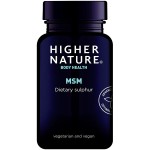 MSM (nutritional sulphur), hay fever and allergies
MSM (nutritional sulphur), hay fever and allergies
Renowned nutritionist Patrick Holford states that “MSM has so many benefits for allergy sufferers that it’s hard to know where to start”.
Stanley Jacob, M.D., in his book “The Miracle of MSM”
I have seen hundreds of allergy cases clear up with MSM, including my own. Years ago, I experienced the typical miseries of a seasonal grass-pollen allergy. From mid-April to mid-July, I required the usual antihistamine relief. In those days, the antihistamine medications often created a side effect of drowsiness. Today, they are less likely to do that. But way back then, it was a price you paid for relief. If I didn’t take medication, my eyes burned, my nose ran, and I developed nasal congestion, making it difficult to breath through my nose. Often the symptoms would persist throughout the day.
I started taking MSM more than twenty years ago, and it relieved my problem entirely. No eye irritation. No runny nose. No congestion. No problem at all through allergy season. I have continued to take MSM for all these years and have not had to resort to an antihistamine even once.
My son Stephen, who is now 46, developed severe pollen allergies about ten years ago at just about the same age that I did. His hayfever came on so strong that he had to take time off from work. Stephen had constant sneezing. His eyes reacted terribly. When this happened, I recommended he start taking MSM.
Stephen says the following about his experience with MSM: “I took about a gram. Within a few days there was a marked decrease in severity, and my condition continued to get better, although I was never completely free of symptoms. After that I started taking MSM every year from the middle of May through July. I could basically control the symptoms although sometimes the pollen was so bad that I had severe attacks and couldn’t work.
“In time I learned that if I started taking the supplement well before the start of allergy season and also doubled the dosage I could get even better control. I now have about 65 percent relief, I would say. Even this past season, which was extremely dry in Portland, I did quite well. I haven’t had to take any time off from work for about four years thanks to MSM. I know I would do even better if I increased the dosage but when I do I get some intestinal reaction. My father and a lot of other people I know can take much more than I can. That’s just my particular comfort zone.”
For some individuals, 1 or 2 grams twice daily may be enough to bring pollen allergy symptoms under control. Others may require 3 or 4 grams twice daily. In general, relief is usually obtained within a range of 2 to 8 grams a day. Always start with a lower amount of MSM, and increase your dosage slowly to avoid the possibility of gastrointestinal discomfort. Should you develop any discomfort, such as increased or loose stools, just reduce the dosage.
For the common pollen variety of allergy you may not need a very high dosage. In some resistant cases, you may have to double the dose, and even double it again. Do this slowly. When you reach the effective level, you will notice rapid relief of allergic symptoms.
I have often been asked the question, “What if I keep increasing the dosage and the allergic symptoms don’t go away?” My answer is always the same: “Nobody bats a thousand.” It just doesn’t work for every person. But it works for many. In pollen allergies it works for most.
For best results, take the MSM in divided doses during the day. My recommendation is to take your doses in the morning and early evening. The evening dose is important because pollen tends to accumulate in the nasal passages at night and thus upon awakening you experience sneezing, coughing, and burning eyes. MSM taken in the evening will often prevent this from happening. But don’t take it too late. It may give you energy and keep you awake.
The following chapter of the same book is devoted to MSM and relief of asthma. Whilst we do not have space to quote at length in this article, suffice it to say that Dr Jacob’s maintains that MSM brings wonderful relief for this related condition too.
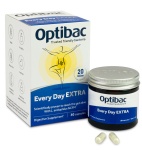 Probiotics and hay fever
Probiotics and hay fever
One fifth of the population are allergic to birch tree pollen1. OptiBac Probiotics For Daily Wellbeing Extra Strength contains L. acidophilus NCFM® and B. lactis Bi-04. A recent clinical trial2 has shown that this specific probiotic combination reduced the symptoms of nasal irritation in birch tree pollen sufferers. Don’t suffer this spring, get yours now!
1. University of Worcester, National Pollen & Aerobiology Research Unit
2. Ouewhand, A.C et al. (2009) Specific probiotics alleviate allergic rhinitis during the birch pollen season. World Journal of Gastronenterol; Vol. 15 pp.3261 -3268
Each capsule provides 20 billion live probiotics.
This product may also help those with a severe imbalance of good and bad bacteria in intestines for example: –
- Those on long term antibiotics
- Those who suffer from conditions such as IBS, or IBD (eg. Crohn’s Disease)
- People with skin conditions such as eczema or acne
- People with busy lifestyles
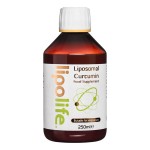 Curcumin – Up to 70% relief?
Curcumin – Up to 70% relief?
A 2016 article in Annals of Allergy, Asthma & Immunology conducted a human trial of the effects of curcumin on a group of 241 subjects who received either oral curcumin or placebo over the course of two months.
The researchers used nasal symptoms and airflow resistance (to measure how much air was moving through the nostrils) to determine the therapeutic effect of the curcumin. At the end of the study, those subjects who received the curcumin showed reduced signs of sneezing and runny nose, as well as less nasal congestion.These symptoms were reduced by approximately 70 percent and persisted after the trial had finished
Source: Wu S, Xiao D. Effect of curcumin on nasal symptoms and airflow in patients with perennial allergic rhinitis. Annals of Allergy, Asthma & Immunology 2016 Dec;117(6) 697-702. https://www.sciencedirect.com/science/article/pii/S1081120616310547
Diet
Milk products and alcohol should be strictly avoided if you are a hay fever or asthma sufferer. Avoiding wheat often helps too as does avoiding smoking. Drinking lots of plain, pure / filtered water also tremendously helps summer allergies.
 With sneeze free and unwatery eyed best wishes
With sneeze free and unwatery eyed best wishes
Mark G. Lester
Director – The Finchley Clinioc Ltd
www.thefinchleyclinic.com

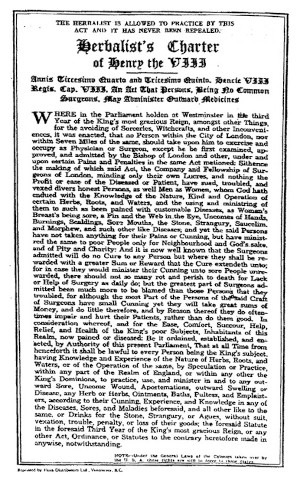
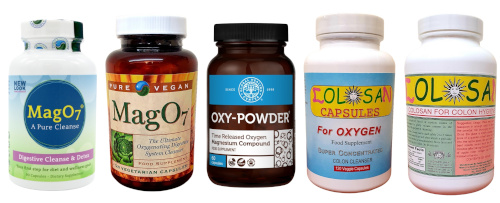 We provide three very similar products –
We provide three very similar products –  Mark G. Lester
Mark G. Lester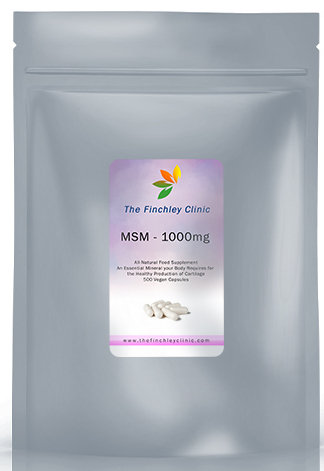

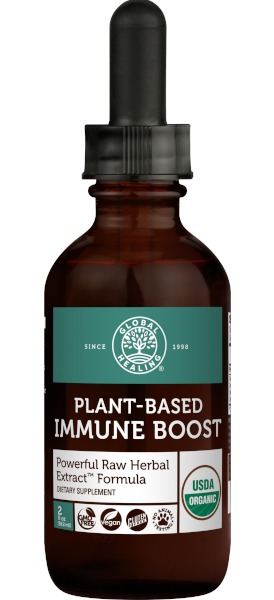

.jpg) There are quite a few massive health stories out there, which the media isn’t telling you – well at least not the mainstream media. Why not? Well, I am not going down that rabbit hole today. I’ve covered that one before. Today I am talking about the real story of Vitamin C.
There are quite a few massive health stories out there, which the media isn’t telling you – well at least not the mainstream media. Why not? Well, I am not going down that rabbit hole today. I’ve covered that one before. Today I am talking about the real story of Vitamin C. 